March for Moms, #MeToo, Birth Trauma, And Ending Medical Model Patriarchy
Dawn Thompson of Improving Birth and Lisa Reagan, Kindred’s editor, connect the dots between America’s failed maternal health, the patriarchal medical model, the normalization of birth trauma, the #MeToo movement and the upcoming March for Moms in Washington, DC, on May 6, 2018. Dawn and Lisa outline the problems, challenges and solutions to upending a patriarchal medical model whose missing core value has been revealed in recent research to be connection: the human relationship between provider and mother.
In this interview you will learn:
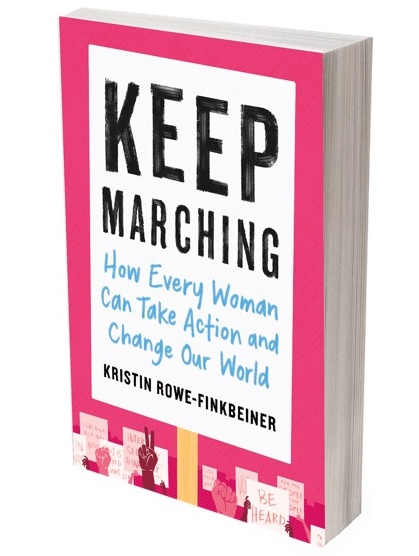
The Problem:
- Listening to Mother’s Survey 2013 – 59% said they had no choice in episiotomies and 23% said they were pressured to do other procedures or exams
- Harvard research shows race bias leads to lower quality of care for black and Latino mothers. In the US, black mothers and their babies are four times more likely to die in and from childbirth complications
- Research shows 1/3 of women experience birth trauma and of those 2/3 say it is relational, the hospital staff did not listen to them
- 700,000 cesareans a year are unnecessary
- 70% of labors are sped up
- Medical model is not relation-based, authoritarian and patriarchal
- Procedures are not science-based – episiotomies are an example
Challenges to Change:
- Obstetrical violence has been normalized in a patriarchal medical model
- Shared decision-making is a relational, and patriarchy is not relational
- Just now holding an unaware patriarchal system accountable – Hw the Kim Turbin lawsuit was groundbreaking in naming her birth trauma the legal crime of “battery”
- Women do not know they can speak up or how to speak up and are enculturated through patriarchy to believe their voices do not matter
- Women, like Kim Turbin, could be labeled postpartum if they complain
- Power struggle form because doctors are trained to steer toward an outcome and not listen
Solutions:
- Teach hospital staff and mothers relational skills
- Educate the public that consent is not a piece of paper, but a human interaction and exchange
- Mother-Friendly Childbirth Initiative’s insight and goal: “Turning maternal health care into a conversation rather than a verdict”
- #MeToo Influence is creating a watershed moment to address all forms of patriarchal oppression of women
March for Moms, #MeToo, Birth Trauma and Ending Medical Patriarchy
A TRANSCRIPT OF THE ABOVE INTERVIEW
#TimesUp for Medical Model Patriarchy
LISA REAGAN: Welcome to Kindred Media, an initiative of the award winning nonprofit Kindred World. This is Lisa Reagan and today I am talking with Dawn Thompson, founder of Improving Birth, about the problems, challenges and solutions surrounding the United State’s maternal healthcare system, as well as the relationship between birth trauma and the #MeToo movement. Dawn will be leading March for Moms in Washington, DC on May 6 to address these issues, and many more. So welcome, Dawn.
DAWN THOMPSON: Thank you. Thanks for having me.
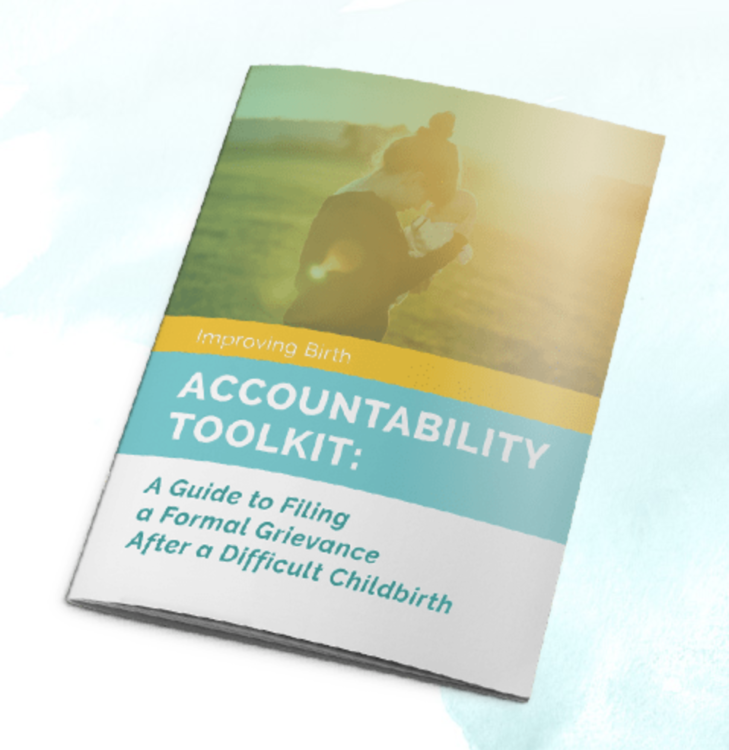
LISA REAGAN: So help us look at the problem because a lot of the statistics that have come in the last couple of years are new and haven’t really been applied to this issue of birth trauma and they’re now being used to show a problem has existed probably from the beginning in this partriarchal medical model.
DAWN THOMPSON: Well, I think that first we can start with the fact that there is a pretty serious lack of awareness about what’s actually happening in maternity care. And that is, that you know, at this point, 1 in 3 women are now giving birth via major abdominal surgery. And the medical system would like to make you believe that it is because, as they say, women are older, fatter, you know, there’s all these things that they say is the reason. All of the research tells us that it is actually the low risk, healthy, young women who are having more cesareans than any of those that are older and overweight. Secondly, we have some of the worst maternal health outcomes in the developed world. Meaning we come in last place among all developed countries and yet we spend three to four times more than any of those countries without better outcomes.
LISA REAGAN: The medical model view is to pathologize, but in this case, pregnant mothers and really when we look at what has come in, like the Listening to Mothers Survey from 2013, what they found is that 59% of mothers said they had no choice in episiotomy and 23% said they were pressured to participate in procedures and exams without their consent. So, there seems to be a predictable breakdown in worldview and the value of communication going on here between doctors and mothers.
DAWN THOMPSON: For sure. I mean, I think the biggest issue is that the system has been based on that “doctor knows best” mentality and we still very much carry that on. It goes both ways. We often as women give up our agency because of that construct and doctors just feel like, “Well, I’m just doing what’s best for her, it doesn’t matter what she thinks. She’s just going to go along with it.”
Listen, I really don’t think that providers understand the long term trauma that they’re causing because a lot of women don’t express it at the moment and ever at all in some cases. They never talk to their provider about it. It is when they talk to their family and their girlfriends about their birth experience when they start talking about the trauma. I do not think that most providers get up every morning saying, “Oooh, who am I going to traumatize today?” Right? I don’t think that’s what’s happening.
LISA REAGAN: Right.
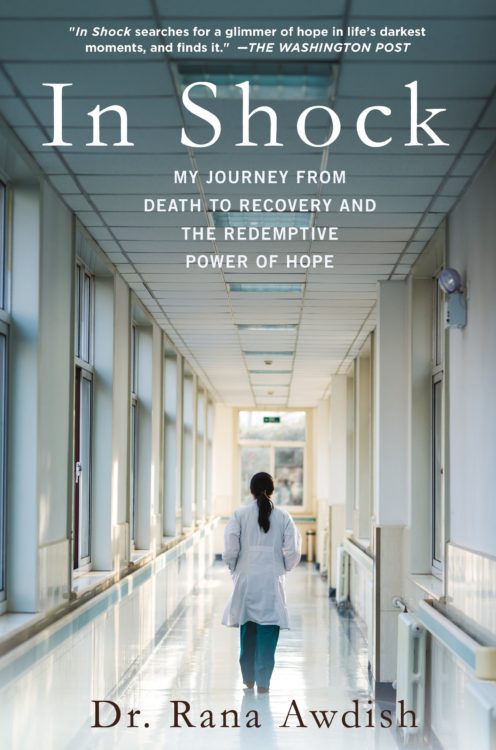 DAWN THOMPSON: But the impulse toward patriarchal thinking is deeply ingrained and deeply embedded in them. There is this incredible book that I just read called In Shock By Dr. Rana Awdish, and it’s an incredible story. Basically, she is a physician who becomes critically ill and nearly loses her life when she suddenly sees the medical industry, and the ICU in particular, through the eyes of the patient. She starts to deconstruct where we’re lacking and almost entirely it is in our ability to communicate to each other in an autonomous way, in a patient-centered way.
DAWN THOMPSON: But the impulse toward patriarchal thinking is deeply ingrained and deeply embedded in them. There is this incredible book that I just read called In Shock By Dr. Rana Awdish, and it’s an incredible story. Basically, she is a physician who becomes critically ill and nearly loses her life when she suddenly sees the medical industry, and the ICU in particular, through the eyes of the patient. She starts to deconstruct where we’re lacking and almost entirely it is in our ability to communicate to each other in an autonomous way, in a patient-centered way.
One of the things that she says is: “Medicine has a long history of preproposing what is right for the patient,” and although this is changing and there is this paradigm shift from the paternalistic model, from the doctor knows best to shared decision-making, but the old construct still weighs the doctor’s recommendations heavily. As young physicians, they are taught that they possess knowledge that would allow them to delineate the possible path for the patient and ultimately that the choice is theirs to make. But, in that choice though, is that feeling that if the patient makes a different decision that you didn’t do a very good job of leading them to the right answer.
LISA REAGAN: Yeah, so it is cultural.
DAWN THOMPSON: Yeah, totally, and it winds up doctors aren’t trained to listen. They are trained to ask questions to steer people to a destination. They’re trained instead to use the questions as fences meant to constrain the answer and get the patient to fit into this pretty little check box. It takes a lot more effort to have a generous ear, right, and be able to relinquish the control of the narrative.
Because of the information age, information is now at our fingertips and that whole Dr. Google thing and they hate patients that go and Google information, as if they are getting all of their information from Mommy Blogs. But the reality is that the research, the surveys, the information that they have just as easily readily available to them are now available to the consumer and the consumer… you know, it isn’t taking the typical 17 years for evidence to become practice.
So the information age closes the time gap for the consumer. The consumer gets pregnant, they go online, and they start looking for the information. They learn the side effects of Pitocin and they say, “No, you know what, I don’t want to have an induction. I don’t want to go the full 42 weeks. No, I don’t want to have a cesarean. No, I don’t want to have an episiotomy.” They make these decisions. And what we’re finding is that somehow when women are being educated and they’re sharing what they want for themselves, it somehow becomes this power struggle if the doctor is so used to, I don’t want to just say doctors, because nurses, midwives, it happens all over the place, that the woman is making a decision about something that might not go along with what this standard practice is for this provider. And it suddenly becomes a power struggle and it somehow comes across as if this woman is insulting the provider’s education. Right? Insulting their knowledge.
But this woman is making a decision based on her own values and her own situation that is impossible for that provider to understand completely. This power struggle winds up turning into in some cases abuse because there winds up being this, you know, in some cases, like in Kimberly Turbin’s case, it winds up literally being abusive.
Obstetrical Violence and the Kimberly Turbin Lawsuit: A Turning Point?
LISA REAGAN: I want to talk to you about this. I want to talk about Kimberly Turbin’s lawsuit because it really does provide a turning point to initiate a lot of discussion about what is happening, but also awareness for mothers who don’t seem to realize that they had an ability to speak up and question the doctor and share their concerns. Moms don’t know that consent is not a piece of paper. That there needs to be an exchange between doctor and patient and not just the forms you fill out before you enter into the hospital. So tell me about this Turbin case.

DAWN THOMPSON: Well, let me address the informed consent because I think it is important to talk about it. The consent forms that people sign, the consumer and providers and nurse believe that when you sign that consent form, that means that you’ve signed the consent form and that you’re covered for everything. That is absolutely not the case. That consent form is just an overview.
They are still required to get consent and you can revoke consent at any time and they have to respect that. So people assume that when you sign that consent form at the very beginning when you start labor gives them absolutely free reign and that is absolutely not true and that will hold up in court. So now that we’re touching that.
As far as Kimberly’s case, Kimberly Turbin was a young mom, single and low income and she was under state financial support for her medical care. She was being seen in a clinic. She met her doctor just the day before she went into labor, so she didn’t have an established relationship with him. When she went into labor, she was laboring great, it went fairly quickly and she had just started pushing and he went to go cut an episiotomy and this was all caught on video. You can find an article about her on our website.
I warn you that it is a very very difficult video to watch. She says, “Wait, why? Why? I’ve just barely started,” you know, like I want to keep pushing. Mind you, she is flat on her back with her legs up in stirrups, almost an impossible position to be pushing in anyways. But he starts berating her and essentially they go back and forth at least five different times of her begging him not to cut her and him essentially saying, “You need to just listen to me. Do what I tell you to do. If you don’t do what I tell you to do, get off this table,” and he literally tells her to “Go back to Kentucky,” She’s never even been to Kentucky. She’s from Los Angeles. You know, but birth is backwards there, but if you want to do it yourself, birth is backwards there. Then he proceeds to cut her and you can hear him cut her 12 times. He caused permanent damage to her perineum. She has constant pain even today. It was a perfect example of a lack of informed consent situation and then he treated her punitively because she was asking for that autonomy.
She didn’t want to be cut. And she went on to file a complaint and hire a lawyer, I thought for sure this would be a slam dunk – we would get an attorney in no time. It took us a year and a half and 80 lawyers before we finally found an attorney to take her case because there was “no severe damage to mom or baby” and therefore, it wasn’t a viable case. So it breaks my heart how many women come to us and say, I was absolutely abused during my childbirth and I want to sue my doctor and I have to tell them that it’s going to be almost impossible. Kimberly had a video of it.
LISA REAGAN: Right.
DAWN THOMPSON: She had video evidence. And all of the lawyers saw that evidence and said, nope, she doesn’t have a case because they had that same doctor knows best, well, the doctor did what he thought was best and she shouldn’t have argued with him. That was even the lawyers that we were talking to that had that same kind of feedback and/or they just didn’t see any money in it. And so she eventually found a human rights lawyer that got behind her and he supported her, but it took three years to get that case settled.
When she went to mediation and they wound up settling the case instead of taking it to court. She had every intention of going all the way to court because she really wanted to make a mark, you know, and have a case that would be on record for other moms to deal with. When they were sitting there in mediation and they told her she was looking at least two to three more years before she would see an end to this case, because even if she won the first time, they would likely appeal. I literally sat there across from her in this mediation room at this table and she just hung her head and started to cry. She said, “You guys I can’t. I can’t go through this for another three years.”
So she settled that day. I didn’t blame her one bit. The fact that providers are afraid of being sued, I think, my opinion at this point is, it is likely a perceived risk more than it is an actual risk most of the time. And yet, so many things that are decisions and policies put in place because of the risk of being sued, you know, you hear doctors say, “I get sued for the cesarean I don’t do, not the cesarean I do.”
LISA REAGAN: Right.
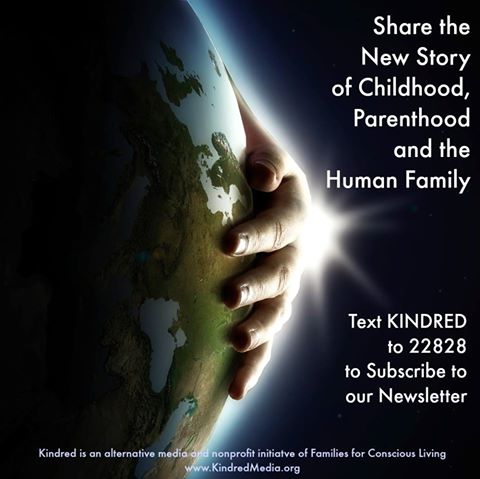
DAWN THOMPSON: And that’s a serious problem, so much of what we are doing to women is based in fear.
LISA REAGAN: But there were, there seems to be some small victories embedded in this process along the way that really did make Kim Turbin out to be a heroine for hanging in there as long as she did because the judge did recognize what happened to her as battery and that is significant.
DAWN THOMPSON: Yes, that is significant. Yes, because normally it would be a malpractice lawsuit, right, or at least most people would assume that it would be, because she did have damage to her perineum, but that wasn’t what the point was. The point was it was a major informed consent violation. And that’s what it needed to be about. So it was the first case of assault against an obstetrician filed in the United States.
LISA REAGAN: And he did surrender his license.
DAWN THOMPSON: He did. Yes, he did. The medical board was beginning an investigation and basically as soon as the investigation started, he just relinquished his license. It did two things: it stopped the investigation, so that was kind of frustrating. It’s like one of those, it’s good and bad. It’s like, great, he’s not going to be harming anymore women, which was the point, but it also prevented any of the investigation from going forward and having that on record. So, there is nothing on his record because of that.
SOLUTIONS: Marching, Toolkits, Getting Our Game On
LISA REAGAN: In your work with Improving Birth, you hear from women all the time who are sharing and are becoming more empowered to share their stories. I feel going through what happened to Kimberly is so horrifying, I want the listeners to know, Improving Birth has this great Accountability Toolkit right now.
DAWN THOMPSON: I think the most important thing that people can do, more than suing, and I get the desire to get money and support from an emotional standpoint. But the most important thing that people can do is file a complaint. It is intimidating to file a compliant. So we created an accountability toolkit. It is free. It is downloadable. It is literally a step by step guide on how to file a complaint because it needs to go to more than just the hospital administrator in order for there to be real accountability. It needs to go to the medical board. It needs to go to the hospital and even if the hospital has a board of directors, it should go to their board of directors. It should go to the head of obstetrics and nursing.
For example, this information in the complaint should go a lot of different places because when it goes to all of these different places the medical board will do an investigation, which is important, but also, it just puts everyone on notice, and then there is a discussion that happens. Whereas, a lot of times people might file a complaint and it will just go to the hospital administration and it just goes on somebody’s desk and somebody reads it and they may or may not do a review on it. They are not obligated to do anything. Where, suddenly, if the board of directors is like, “Hey we got this letter what’s going on?” then it is more likely to get reviewed.
We can’t guarantee that people will get a response, but so many people have told us that it made them feel more empowered. By just doing the process, by writing the story, telling the story, and sharing the story, it really did some healing for them and so if you know, in the end, that’s all it does, that’s still better than nothing. I believe that when we tell our stories is when the things change. It’s like when the doctor, I know that I want to believe that these providers are good people. They’re just like you and me and they’re working hard and they just get so stuck in what their frame of reference is, right?
But I imagine if they receive a letter of this woman who says, “This is what you did made me feel.” It may make them think twice about it the next time. I also want to say that not all of this is extreme abuse like Kimberly’s situation. Right? A lot of times, it is just the undertones of annoyance. It’s the woman who comes in with a birth plan and the nurse rolls her eyes, and it’s like, “Oh great, you’re one of those.”
LISA REAGAN: Right.
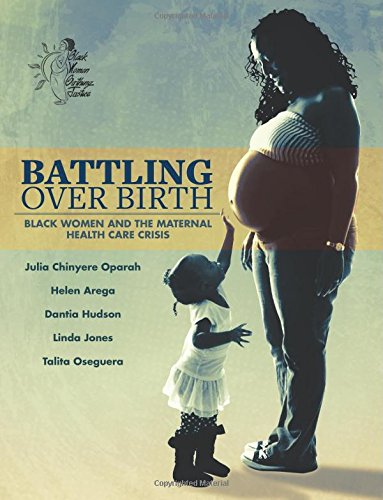
DAWN THOMPSON: You know, like, oh great, let me get the gurney ready for your OR because that’s where we’re going because you’ve got a birth plan. It’s just that disrespect. It’s the degrading. It’s the… it’s all of those little things that leave a mark.
LISA REAGAN: Even Kim Turbin complained in the hospital while she was given postpartum depression brochures and said, “Oh, you’re upset, read this.” So it does seem that the potential for being perceived as a “hysterical” woman who is not being compliant with a patriarchal system and trying to step on your own power, you risk being told, “You’re crazy, you’re depressed, you’re pathologically something.”
DAWN THOMPSON: Yeah. Her doctor… One of her doctors at one of her visits when she was complaining about how much pain she was in from the episiotomy, the response was to go get her a tube of lube and to try this. Telling them it is painful every time I try to have sex. I can’t have sex. This is a year after her birth.
LISA REAGAN: Right.
DAWN THOMPSON: The answer was here’s some lubrication, like…
LISA REAGAN: Right.
DAWN THOMPSON: Frustrating.
Old Story Dominator Model, Because We’re All Enculturated
LISA REAGAN: So I think it’s important to know, at Kindred, when we talk about worldview and we talk about shifting between our industry-driven Old Story of separateness to a New Story of connection, I find it useful to refer to the patriarchal model as the Dominator Model because, sometimes, people hear partriarchy and they say, “Oh it’s a male thing.” It’s actually not. We are all encultarated inside it.
DAWN THOMPSON: Yeah. Yeah, it’s not just a male thing.
LISA REAGAN: When we’re participating in a Dominator Model, you can take the gender out of it and say, there are dominator type behaviors and then there are enablers, victims and the victimized who still go along with systemic abuse. So trying to empower women to speak up about what is happening for them and help them to see for themselves that this is how the change is most likely to come about, one relationship at a time. This is moving us light years away from this Old Story and this dominator and patriarchy model. I want to talk about what is happening right now. It seems like the patriarchy impulse and its institutions and defenders are being upended and I hope it continues. Do you think there is a #Metoo movement influence on your work? In the outing of obstetrical violence?
DAWN THOMPSON: No question about it. I mean, you know, I actually started writing an article, #Metoo and childbirth back at the end of the year last year and because the parallels are so obvious and I’m sure that there are so many other industries that are feeling and thinking the same thing. Like anywhere that there is that this dominated set up, you know, hierarchy, we see it. It’s not just in the workforce. It’s not just in Hollywood. It’s not just… you know, it’s in every place where there’s a dominator and it’s easy to just get caught up in all of it, you know. I think that the #metoo movement will absolutely impact childbirth and I am hoping that, you know, there are doctors that are flat out abusers.
There is no question about that. You know, but the problem is that the nursing staff isn’t allowed to complain because they risk losing their job or risk being abused by the same doctor more because they are opening their mouth, but I am hoping that this #metoo will carry over into that arena and that nurses and patients will be able to really call out those abusers and that whole times up thing will permeate and that we can go to those providers who are abusive and say, times up guy, this is not acceptable anymore. You cannot treat people this way and you need to move along and do something different because this is not where you need to be.
LISA REAGAN: When we talked before we set up this call, I remember you saying that sometimes they don’t know what the something else is. The Mother Friendly Initiative is something else. There is something else now and I would really love to hear you talk about that, although I think I am going to have to interrupt myself and read the quote from the website on the Mother Friendly Initiative page, which says “Turning maternal healthcare into a conversation rather than a verdict,” and I thought well, that sums that up. That really does.
DAWN THOMPSON: It’s really concise, isn’t it?
LISA REAGAN: Yes, it is.
DAWN THOMPSON: Change is never easy. I think change is never easy but we’re at a pretty significant intersection in history and we’ve all got to get on board that what we’re doing isn’t working and hasn’t been working and it’s time to do something different. There are so many pressures for hospitals and providers to reduce their cesarean rate, reduce their induction rate, leapfrog, not leapfrog, Jaco back in 2012 I think it was, or maybe it was 2014, it said any hospitals over 1100 births a year need to reduce their cesarean rates. But the problems was, they didn’t tell them how. There was no guidance on what tips and things that they could do to actually accomplish that. And often times, the providers are actually contracted workers, they’re not employees. Quote, unquote, I do air quotes, but making them do any sort of things isn’t always an easy thing to accomplish and in some cases, they’re not even clear about who is doing what, like who is causing that high cesarean rate.
Thankfully, there’s programs like CMQCC that are creating transparency programs that we hope to see will permeate all across the United States, but so far it is having a pretty significant impact in California hospitals. I dreamt of the hospital accreditation program before I even started Improving Birth. It is why I started Improving Birth – to create a program. Because the information is out there and we can all day long bring the stats, bring the slides, and the power points, but the reality is we have to create behavioral change and we need the leading experts in this country to tackle this issue with us.
So we are working with behavioral scientists to put this program together that essentially it will be an ongoing program where a hospital signs up and they are dedicated to improving their numbers, that we can come in and have a great conversation and tackle the pain points that providers are dealing with. We can’t just come at it from a consumer standpoint, right, we have got to tackle what their pain points are. So we have been developing this program, actually our pilot program launches in April along with our alongside units, and these are the midwifery led units. They were previously called in hospital birth centers, but they will now be alongside units like they call them in Europe. You know, most of them qualify for mother friendly because they already have low cesarean and induction rates, but so while we’re developing the education program with behavioral change in the background we will at least be getting the alongside units up and running and give that as an option for folks.
LISA REAGAN: And this is not to be confused with the baby friendly initiative?
DAWN THOMPSON: No, it’s not. That is a completely different organization. The Mother Friendly Initiative, although I think we would eventually get to a place where I’d like to see us combine our efforts, right, and have a Mother Friendly Baby Friendly accreditation but that’s still in discussion. That still needs to happen. It’s definitely different. And it’s not, by the way, none of our stuff excludes the baby. I think that’s super important. It’s that none of us are more invested in the baby than the mom. Right?
LISA REAGAN: Right.
DAWN THOMPSON: In most situations. There are situations where that is untrue. I would say in 99% of the situations, no one has a greater investment in that baby than the mother and the mother experience directly translates to that baby’s experience and therefore if we start instead of just treating the mom as a vessel, which is often times what is happening, everyone is so focused on the baby and getting the baby out healthy that they forget that the mom needs to be treated with humane and respect and as an autonomous person who gets to make decisions based on her belief systems and her values.
LISA REAGAN: I think you hit on the word, humane. It seems like what is needed now is the return of humanity if it ever existed inside of the medical model for the staff who are trained in having to operate inside of a system, this how they pay their bills. This is how they live.
DAWN THOMPSON: Right.
LISA REAGAN: So to meet them where they are and to eliminate their blindspots inside the system and then to meet mothers where they are and to empower them to speak up and to speak out and to know that really need to do this in order to effect change in order for all of those coming behind them.
DAWN THOMPSON: Yeah.
LISA REAGAN: It is quite a task ahead of us. So tell me about the march in Washington. It is not just in Washington. It seems like there is tremendous movement for change.
DAWN THOMPSON: For sure. I mean, the March for Moms is going to launch off this year’s first annual Maternal Healt Wellness Awareness Week, which is the week leading up to Mother’s day. So on Sunday May 6, we will gather in Washington DC for our big event. It is being organized by March for Moms which is a foundation run by Ginger Breedlove, who is the former president of AC&M and an obstetrician Neal Shaw. I am a proud founding member of that organization. And then, our organization, Improving Birth, does a rally each year normally around labor day, but we chose to move our rally to Improving Birth to join them so that we can have sister marches all around the country. So far I think we’ve got about 20-25 locations around the country. We need at least double that.
I was hoping more people will get engaged and understand the importance of this event. The big deal is the fact that every major health organization is participating in this event. So ACOG, AWON, ABC, CDC, I am using the acronyms, but we have a lot of health organizations that normally don’t cross over, but they are all coming together and investing in this event to say mom’s matter, maternal health matters, and we’ve got to make a change. The event in DC is actually a three day event. It will lead into advocacy on Tuesday. On Monday, there is an advocacy day training because you know, a lot of people are not super comfortable and confident about going and talking to the legislatures, so we’re offering a training on Monday and then Tuesday we will hit the hill and we will go talk to the legislatures about the maternal health bills that are already out there that we need to get support for and hopefully get them to pass so that we can have better leave, you know maternal health leave and access, and there’s a lot of issues that drive our maternal mortality rates here and we’re just trying to just do our best to get that, to raise awareness and to get people who are decision makers to support it. Excuse me.
LISA REAGAN: Well, I look forward to following up with you after the march. I do feel things shifting and changing quickly and I feel a receptivity from people on all sides who are now looking for solutions and I know that you’ve held this space for a long time and I’m grateful to you for that, Dawn.
DAWN THOMPSON: Today is March 5 and it is our 6th anniversary for Improving Birth.
LISA REAGAN: That’s wonderful. That’s wonderful. But you were in the field before that as well.
DAWN THOMPSON: Oh yes, for sure. I’m sorry I’m having a cough attack, of course, perfect timing.
LISA REAGAN: I want to tell our listeners…
DAWN THOMPSON: We were. I was a doula for 13 years before getting engaged with Improving Birth, so I’ve been in the birth industry a long time.
LISA REAGAN: So I want to send our readers over to Kindredmedia.org. If you’re listening to this, you can find the transcript there along with links and lots of resources and I want to draw your attention to the Battling over Birth series, Black Women and the Maternal Healthcare Crisis, which is a three part series featured on Kindred right now and it is excerpted from the new book, Battling over Birth. We didn’t go very far into those statistics on black women and maternal birth in this country that they are four times more likely to die in childbirth so this is a crucial piece of the discussion right now.
DAWN THOMPSON: Yeah, no question. I’m sorry that I failed to discuss that actually. It’s a significant issue and I think it’s important to say that what we know is that, like you said, women of color and their babies are four times more likely to die than white women and a lot of people would just like to assume that it is because of their socioeconomic situation and that’s absolutely not true. Women of all socioeconomic standpoint are effected by this and it points to institutional racism.
LISA REAGAN: Yes.
DAWN THOMPSON: It’s a pretty significant issue and our current politics have shown us that racism is alive and well in the United States and it’s just like the #metoo thing. It permeates everywhere. Racism permeates everywhere and sometimes it means people die and childbirth is no different.
LISA REAGAN: Right. Well, Harvard research has shown that mothers of color receive lower quality of care due to implicit bias and I again, really recommend the new book, Battle over Birth,because it is being championed by black women birthing justice and the voices in there that you hear, I’m just pointing out, are voices from their particular experience which cannot be assumed by anyone who has not walked in the shoes of a black mother and I really admire all of the work that’s gone into putting this book together and bringing forward these voices. That is a really needed piece of maternal health in America. So, Dawn, tell us what we can find when we go to improvingbirth.org.
DAWN THOMPSON: Well, we’ve got the accountability toolkit. Our whole purpose is creating toolkits to help people improve birth. Because we as a single organization cannot do it by ourselves. We need people in the community to tell the story. So we’ve created a story telling toolkit, we’ve created the accountability toolkit, we’ve created the healing toolkit for mothers who have suffered because it is important so many of them suffer in silence and don’t process or heal from the pain and I think it’s just as a crucial of a point as writing a complaint as making sure that you’re taking care of yourself. We have opportunity for membership to support the organization and stay connected. We also have the opportunity for people to sign up as a sister location for the March for Moms. You know, advocates in your community need a place to lift their voice and you can be that person who can organize an event so that they can do that.
LISA REAGAN: Well, that is wonderful. Thank you so much. Thank you so much for coming on today and talking with me and I look forward to following your work. As we say at Kindred, you’re definitely bringing the new story forward. I am very grateful for you and your work so thank you so much.
DAWN THOMPSON: Thank you. Thanks for having me.
RESOURCES
Visit Improving Birth
Kindred’s extensive collection of birth and pregnancy articles



